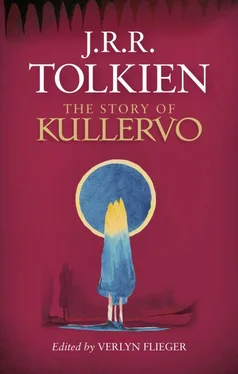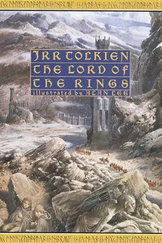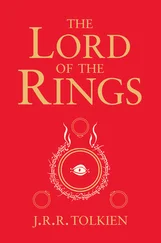And thus fared Sākehonto to the forest slashing at all that he saw to the right or to the left, him recking little of the wrack, and a great tree-swathe lay behind him for great was his strength. Then came he to a dense part of the forest high up on one of the slopes of the mountains of gloom, nor was he afraid for he had affinity with wild things and Mauri’s [Musti’s] magic was about him, and there he chose out the mightiest trees and hewed them, felling the stout at one blow and the weaker at a half. And when seven mighty trees lay before him on a sudden he cast his axe from him that it half cleft through a great oak that groaned thereat: but the axe heldthere quivering.
But Sāki shouted, ‘May Tanto Lord of Hell do such labour and send Lempofor the timbers fashioning.’
And he sang:
Let no sapling sprout here ever
Nor the blades of grass stand greening
While the mighty earth endureth
Or the golden moon is shining
And its rays come filtering dimly
Through the boughs of Saki’s forest.
Now the seed to earth hath fallen
And the young corn shooteth upward
And its tender leaf unfoldeth
Till the stalks do form upon it.
May it never come to earing
Nor its yellow head droop ripely
In this clearing in the forest
In the woods of Sākehonto.
And within a while came forth Ūlto to gaze about him to learn how the son of Kampo his slave had made a clearing in the forest but he found no clearing but rather a ruthless hacking here and there and a spoilage of the best of trees: and thereon he reflected saying, ‘For such labour is the knave unsuited, for he has spoiled the best timber and now I know not whither to send him or to what I may set him.’
But he bethought him and sent the boy to make a fencing betwixt some of his fields and the wild; and to this work then Honto set out but he gathered the mightiest of the trees he had felled and hewed thereto others: firs and lofty pines from blue Puhōsa and used them as fence stakes; and these he bound securely with rowans and wattled: and made the tree-wall continuous without break or gap: nor did he set a gate within it nor leave an opening or chink but said to himself grimly, ‘He who may not soar swift aloft like a bird nor burrow like the wild things may never pass across it or pierce through Honto’s fence work.’
But this over-stout fence displeased Ūlto and he chid his slave of war for the fence stood without gate or gap beneath, without chink or crevice resting on the wide earth beneath and towering amongst Ukko’s clouds above.
For this do men call a lofty Pine ridge ‘Sāri’s hedge’.
‘For such labour,’ said Ūlto, ‘art thou unsuited: nor know I to what I may set thee, but get thee hence, there is rye for threshing ready.’ So Sāri got him to the threshing in wrath and threshed the rye to powder and chaff that the winds of Wenwe took it and blew as a dust in Ūlto’s eyes, whereat he was wroth and Sāri fled. And his mother was feared for that and Wanōna wept, but his brother and elder sister chid them for they said that Sāri did nought but make Ūlto angered and of that anger’s ill did they all have a share while Sāri skulked the woodlands. Thereat was Sāri’s heart bitter, and Ūlto spake of selling as a bond slave into a distant country and being rid of the lad.
His mother spake then pleading, ‘O Sārihontō if you fare abroad, if you go as a bond slave into a distant country, if you perish among unknown men, who will have thought for thy mother or daily tend the hapless dame?’ And Sāri in evil mood answered singing out in light heart and whistling thereto:
Let her starve upon a haycock
Let her stifle in the cowbyre
And thereto his brother and sister joined their voices saying,
Who shall daily aid thy brother?
Who shall tend him in the future?
To which he got only this answer,
Let him perish in the forest
Or lie fainting in the meadow.
And his sister upbraided him saying he was hard of heart, and he made answer. ‘For thee treacherous sister though thou be a daughter of KeimeI care not: but I shall grieve to part from Wanōna.’
Then he left them and Ūlto thinking of the lad’s size and growing strength relented and resolved to set him yet to other tasks, and is it told how he went to lay his largest drag-net and as he grasped his oar asked aloud, ‘Now shall I pull amain with all my vigour or with but common effort?’ And the steersman said: ‘Now row amain, for thou canst not pull this boat atwain.’
Then Sāri Kampa’s son rowed with all his might and sundered the wood rowlocks and shattered the ribs of juniper and the aspen planking of the boat he splintered.
Quoth Ūlto when he saw, ‘Nay, thou understandst not rowing, go thresh the fish into the dragnet: maybe to more purpose wilt thou thresh the water with threshing-pole than with foam.’ But Sāri as he was raising his pole asked aloud, ‘Shall I thresh amain with manly vigour or but leisurely with common effort threshing with the pole?’ And the net-man said, ‘Nay, thresh amain. Wouldst thou call it labour if thou threshed not with thy might but at thine ease only?’ So Sāri threshed with all his might and churned the water to soup and threshed the net to tow and battered the fish to slime. And Ūlto’s wrath knew no bounds and he said, ‘Utterly useless is the knave: whatsoever work I give him he spoils from malice: I will sell him as a bond-slave in the Great Land. There the Smith Āsemowill have him that his strength may wield the hammer.’
And Sāri wept in wrath and in bitterness of heart for his sundering from Wanōna and the black dog Mauri. Then his brother said, ‘Not for thee shall I be weeping if I hear thou has perished afar off. I will find himself a brother better than thou and more comely too to see.’ For Sāri was not fair in his face but swart and illfavouredand his stature assorted not with his breadth. And Sāri said,
Not for thee shall I go weeping
If I hear that thou hast perished:
I will make me such a brother —
with great ease: on him a head of stone and a mouth of sallow, and his eyes shall be cranberries and his hair of withered stubble: and legs of willow twigs I’ll make him and his flesh of rotten trees I’ll fashion — and even so he will be more a brother and better than thou art.’
And his elder sister asked whether he was weeping for his folly and he said nay, for he was fain to leave her and she said that for her part she would not grieve at his sending nor even did she hear he had perished in the marshes and vanished from the people, for so she should find herself a brother and one more skilful and more fair to boot. And Sāri said, ‘Nor for you shall I go weeping if I hear that thou hast perished. I can make me such a sister out of clay and reeds with a head of stone and eyes of cranberries and ears of water lily and a body of maple, and a better sister than thou art.’
Then his mother spake to him soothingly.
Oh my sweet one O my dearest
I the fair one who has borne thee
I the golden one who nursed thee
I shall weep for thy destruction
If I hear that thou hast perished
And hast vanished from the people.
Scarce thou knowest a mother’s feelings
Or a mother’s heart it seemeth
And if tears be still left in me
For my grieving for thy father
I shall weep for this our parting
I shall weep for thy destruction
And my tears shall fall in summer
And still hotly fall in winter
Till they melt [the] snows around me
And the ground is bared and thawing
And the earth again grows verdant
And my tears run through the greenness.
O my fair one O my nursling
Kullervoinen Kullervoinen
Sārihonto son of Kampa.
Читать дальше












